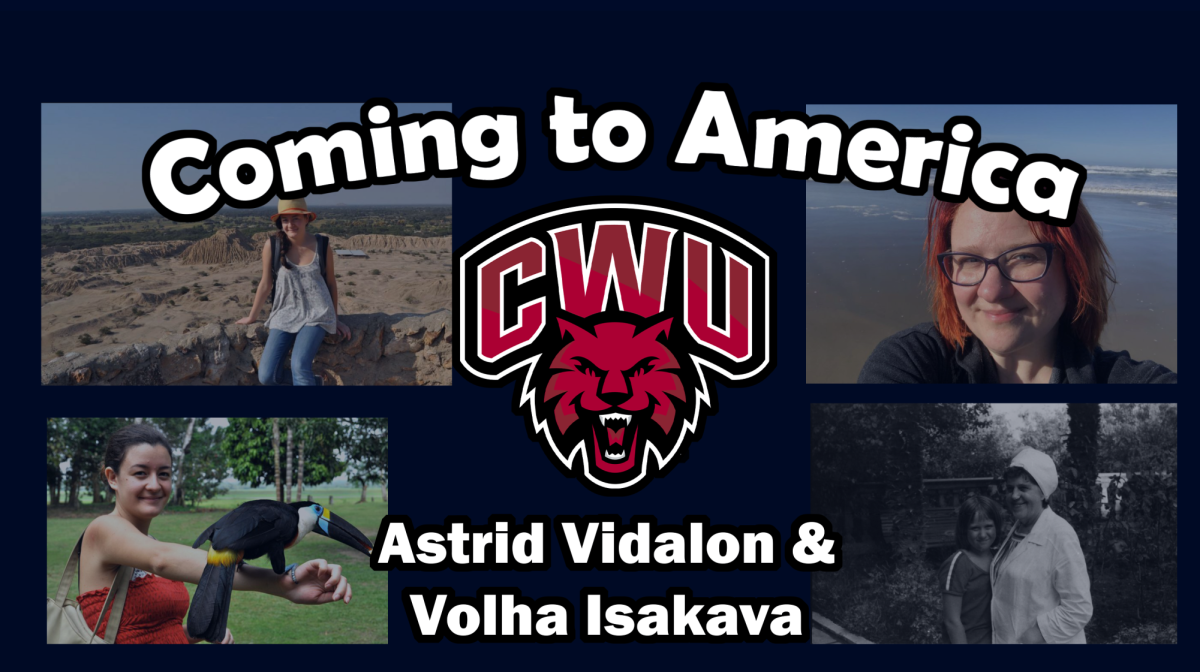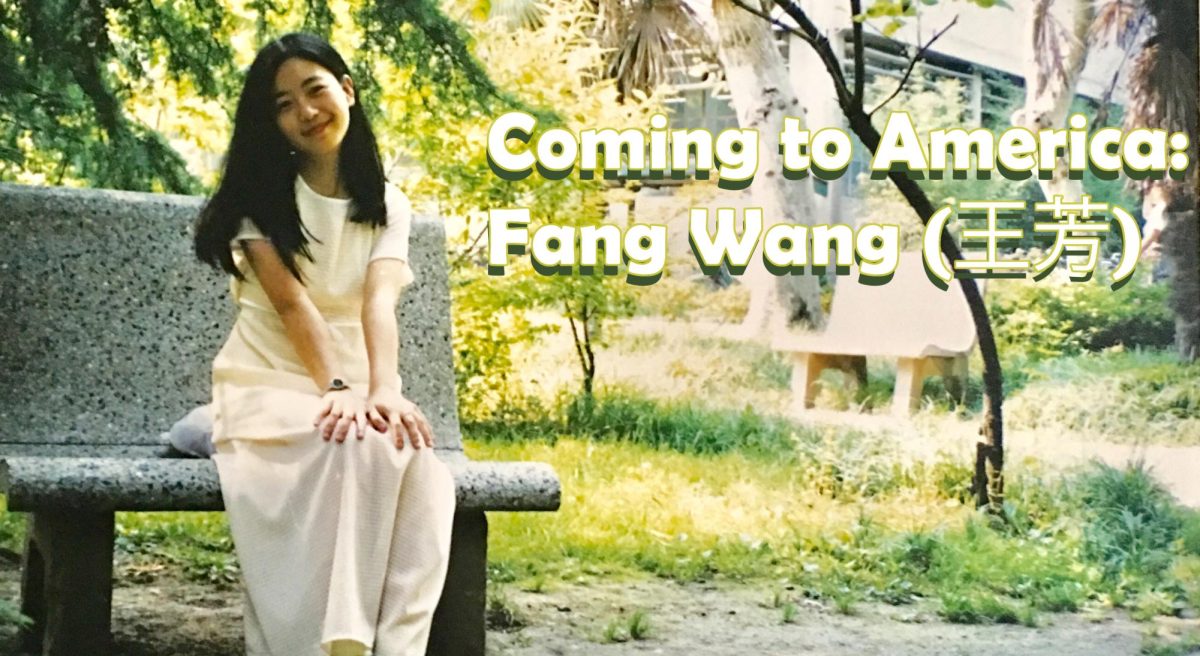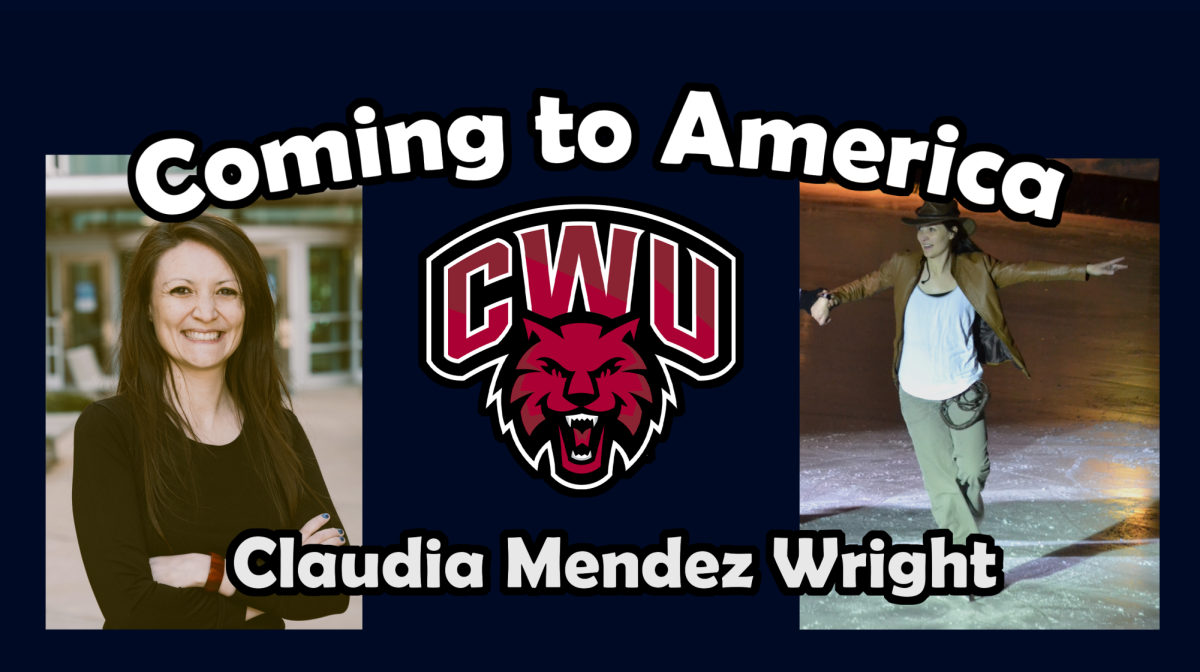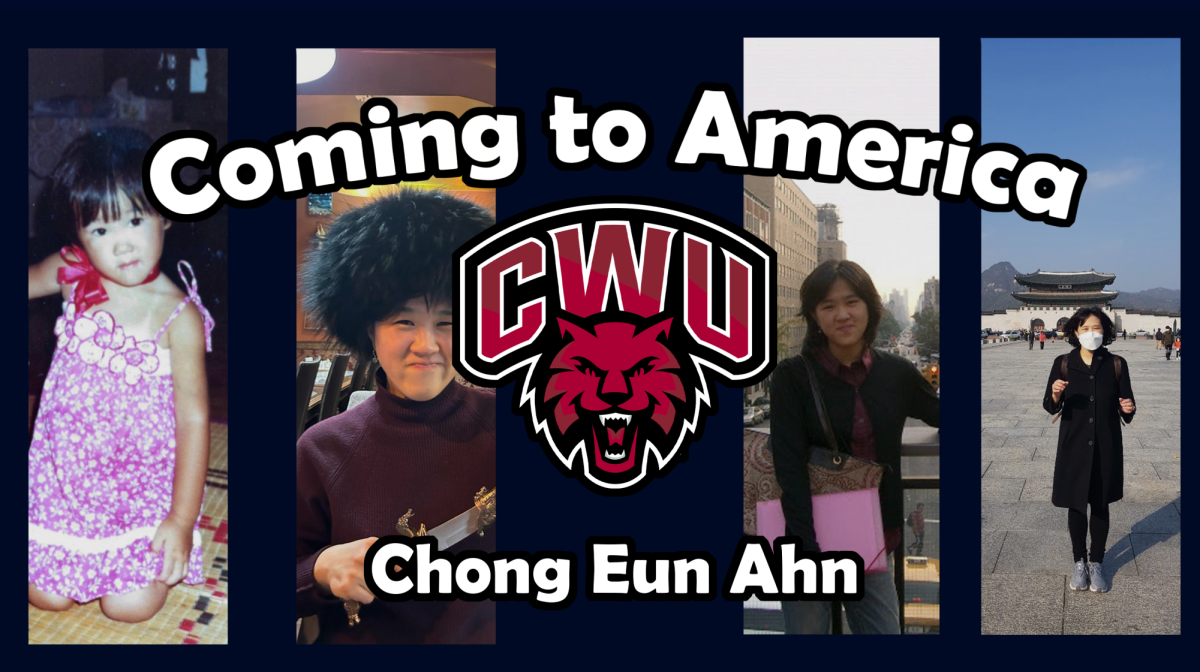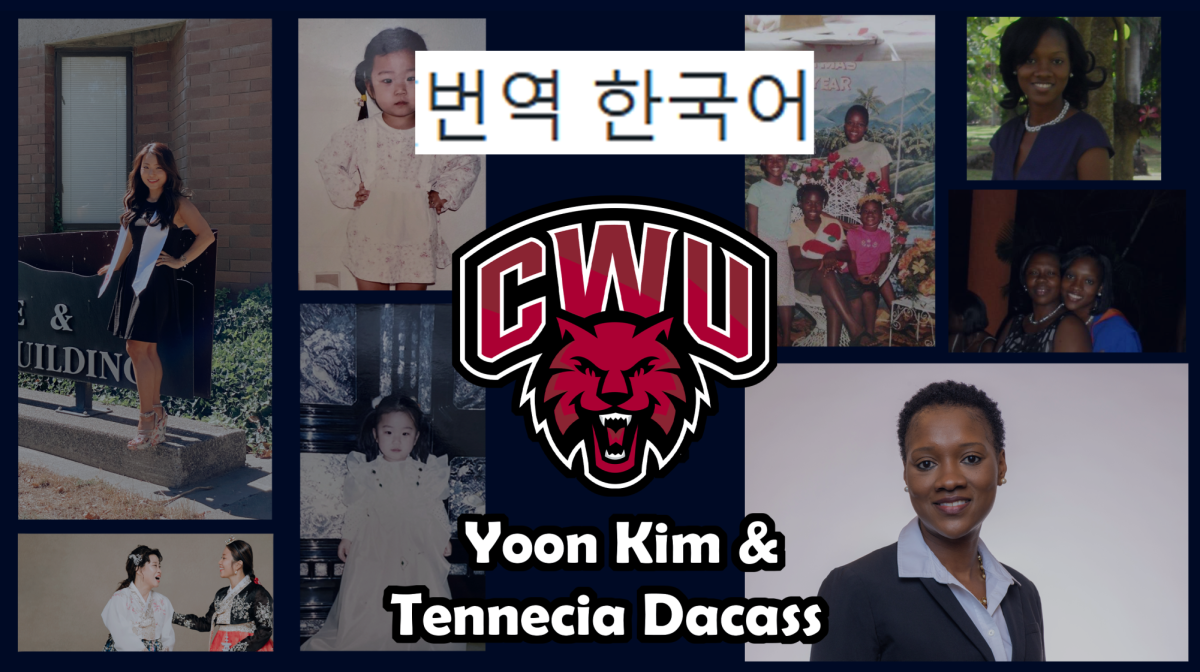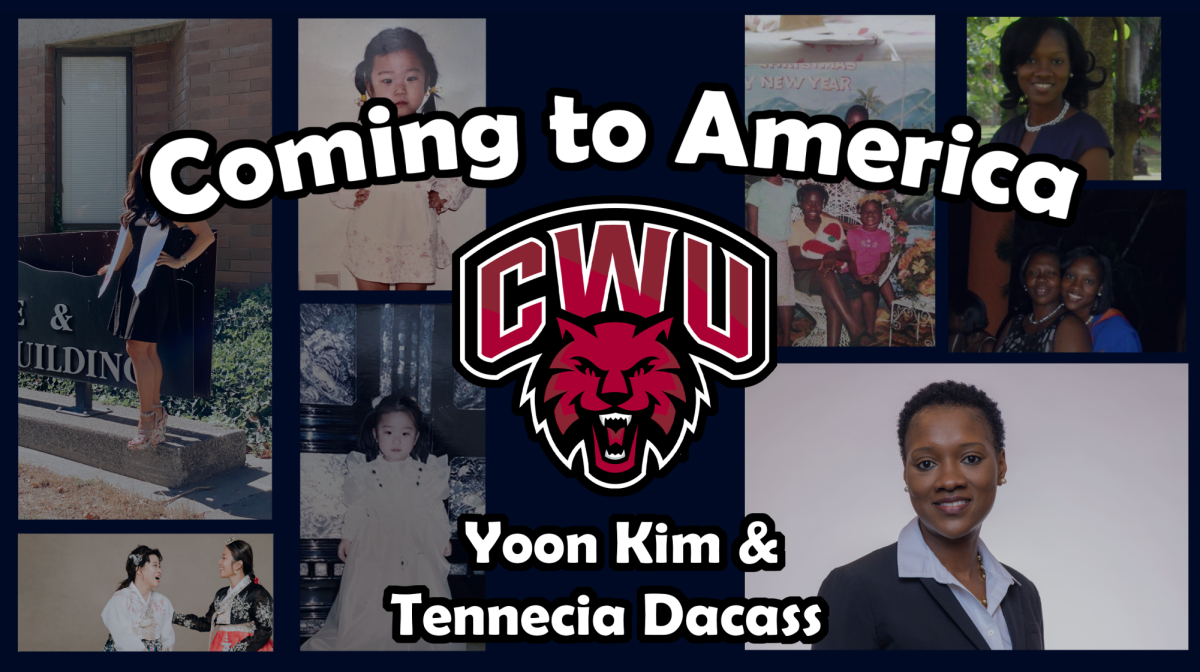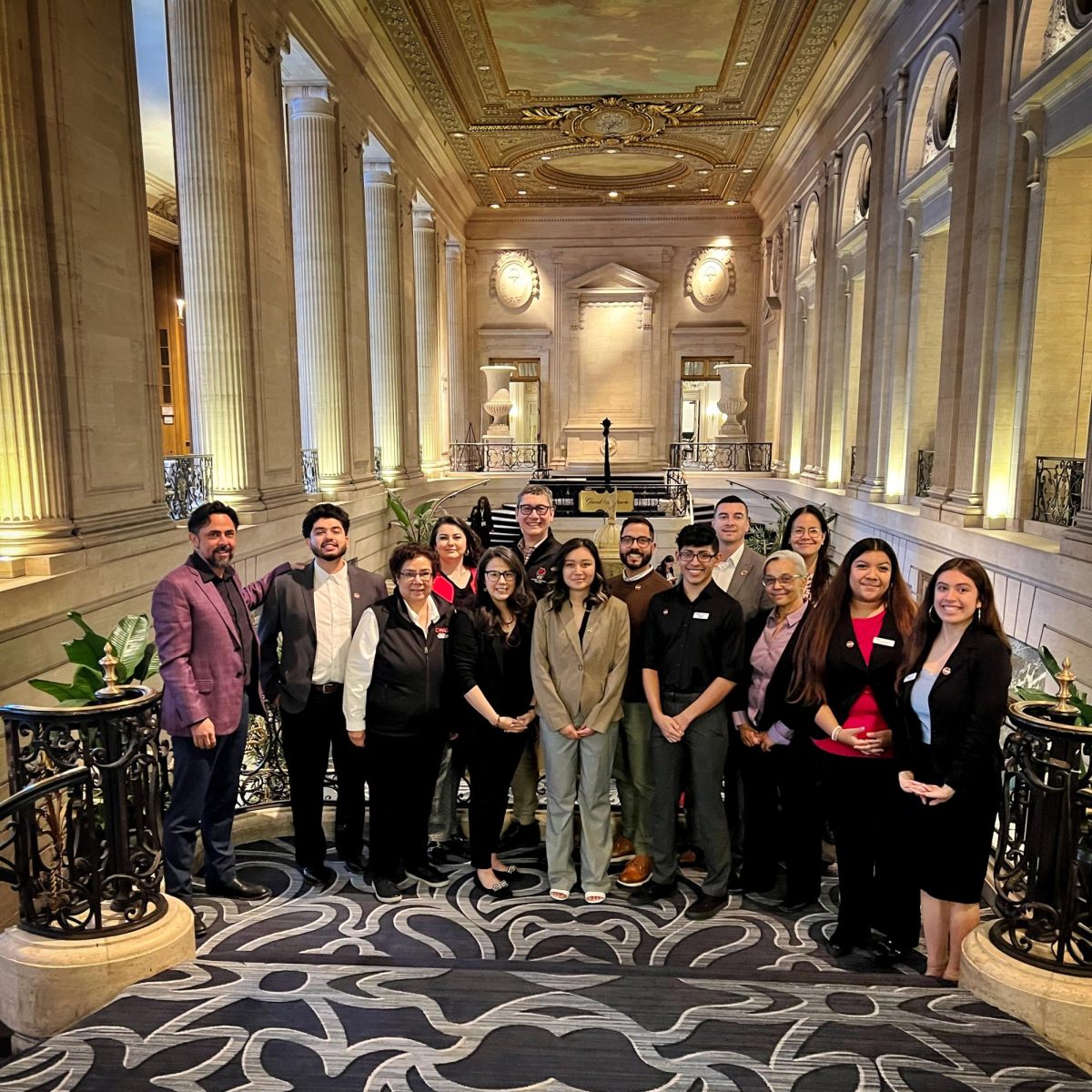CWU employs professors from all around the world. Professor Astrid Vidalon and Dr. Volha Isakava shared their stories with the Observer to share with the community.
Astrid Vidalon
Astrid Vidalon is an assistant professor in CWU’s apparel, textiles and merchandising program. Vidalon grew up in Huancayo, Peru, “a city in the Andes Mountains, maybe 10,000 or 11,000 feet above sea level,” Vidalon said.
Vidalon began her career with getting her communications and advertising degree at Universidad Peruana de Ciencias Aplicadas in Peru (Peruvian University of Applied Sciences), “I love how creative it is in advertising,” Vidalon said. “It’s very fun and creative, but I didn’t really like the end purpose, where you’re using all that creativity to sell products that people don’t really need.”
After graduating, Vidalon began working for the Peruvian branch of Grupo Planeta, the largest Spanish speaking publishing company in the world, “I was overseeing publishing projects, and some of those projects had to do with traditional textiles, traditional handicrafts from Peru,” Vidalon said. “I’ve always loved fashion and traditional textiles from Peru, because it is super diverse. That experience brought me back to my original passion, and I realized I would like to study fashion and work with Peruvian traditional textiles.”
Vidalon soon met her husband, who was in the country studying Peruvian music, “So he convinced me to come to the states to study English and maybe get a masters degree,” Vidalon said. In 2011 Vidalon and her husband moved to Spokane, and Vidalone later began taking classes at WSU, “I started taking classes, but it was super expensive because I had to pay as an international student. I did that for a little while, but it was too much money. Education here in the states is expensive even for domestic students, but for international students it’s crazy expensive, maybe two or three times,” Vidalon said.
“I think the hardest part of coming here is that in Peru, I was someone. I had achieved things professionally, I was a marketing director for this publishing company. But then here in the states. It doesn’t matter. You need to start from the bottom. That’s what I felt at the time because I didn’t have an education here,” Vidalon said. When she first moved to the United States, it felt as though her education and professional experience from Peru didn’t matter, as she could not get jobs even in fields that she had experience in, “It didn’t matter, so it felt like I needed to do something else like work in Walmart or something like that.”
After getting married to her husband, Vidalon decided she wanted to go into apparel, “At WSU they have a master’s program that is very good and also offered assistantships, so while I had to wait an extra year, I didn’t have to pay for it. Then I got this job [at CWU] right after school.” Vidalon began her career at CWU in 2016.
“I really miss my country. I think being an immigrant is very hard because most of us move away looking for opportunities. For example, in work, I love it here, and it’s an opportunity that I wouldn’t have in Peru. Teaching and the benefits you get is something that would be very hard to get in Peru, and I like that stability,” Vidalone said. “But I miss the family part. My culture, Latin culture, is very family oriented and very social. There’s a lot of events and festivities, and I really miss that.” Vidalon still visits Peru regularly, trying to go once a year or at least every other year, “I have kids, and I want them to grow up with that cultural connection to Peru.”
To Vidalon, while being an immigrant is challenging, she sees that it also really enriches communities, “Every country is different, and we all have a wealth of culture that we can share here in the states. Something I experienced in the United States was that as a student, I was surrounded by people from all over the world and that was one of the most wonderful experiences. As a student you learn from food and you learn from people from different parts of the world. You get to learn their cultures and their traditions and I think that’s one of the most enriching experiences you can have, and you don’t get that anywhere else, because in the United States people come from all over the world.”
Volha Isakava (Вольга Ісакава)
Dr. Volha Isakava is a professor and chair of the world languages department. She teaches Russian language and culture as well as globalization and film. Isakava has her bachelors in cultural studies from Saint Petersburg State University as well as her masters and PhD in Slavic languages and literatures from the University of Alberta.
“That [my home country] is actually complicated,” Isakava said. “Because I was born in Crimea, Ukraine. But as you may know, Crimea was annexed by the Russian Federation back in 2014, so my home is kind of one of those limbo places. I consider it Ukraine, but obviously Vladimir Putin would disagree with that assertion. But I call Belarus my home country. That’s where I grew up, and that’s where my roots are.” Isakava spent her childhood in Minsk(Мінск), the capital city of Belarus(Беларусь), and would often spend summers in Crimea.
“I am one of the last Soviet generations, so to speak. I was 15 when the Soviet Union fell apart, so most of my formative years were spent when the Soviet Union was gradually falling apart. These were very exciting times in the sense that there was a lot more freedom of speech and expression and information. A lot more nonconformist subcultures and ways of being came about in the ‘80s. My childhood was very much defined by the Soviet paradigm, right? And then my young adult life was defined by the post Soviet economic hardship,” Isakava said.
“I’m not sure what the highlights of growing up in the ‘90s here were, but being a young adult in the ‘90s Soviet space was punctured by both this incredible openness to all kinds of things that were previously forbidden, but also extraordinary economic hardships,” Isakava said. “A lot of deficit and an inability to procure common goods and food, and the political upheaval. Because when you go through a societal collapse it shows, and I don’t think that is part and parcel of the American experience, to live though societal collapse.”
As a young adult, Isakava moved to Canada, “I moved to the west, to North America, partially because living through a societal collapse and living in an unstable society is really taxing. It’s really stressful because you’re anxious all the time…additionally, I wanted to be an academic, and Belarusian academia at that point was extraordinarily sexist. So I was not going to get ahead. After I watched my female professors stagnate in their careers and not be able to make rank and not being able to get promotions I thought that this is absolutely not for me. So I moved to Canada.”
Moving away from home didn’t come without its culture shocks, “When I moved to Canada, I had this impression that I was coming to this land of so much freedom where everybody can be whatever they want, and I would see all this incredible diversity of people and opinions and expressions,” Isakava said. “And then I arrived on campus and on my first day, I noticed that all the undergraduate students were wearing the same colors. I realized that western societies also carry a lot of conformity in them. That was my biggest shock. And apples. I still don’t know why people wax apples in North America. Yes to peanut butter, no to waxed apples.”
After gaining Canadian citizenship, Isakava moved to the US to begin working at CWU, “If I wasn’t a Canadian citizen, there’s probably no chance I could have immigrated here and got permanent residency while still being a citizen of Belarus,” Isakava said. “Often we think of Canada and the US as these countries of immigrants, where immigrants are welcome. There’s a big debate in the US right now about legal versus illegal immigration, but legal immigration is extraordinarily hard in all Western advanced countries. I am very fortunate because as a tenure track professor, the university sponsored my green card. But I still had to go through a specialty law firm who helped me gather my documents and submit them, because everything is complicated.”
After being hired by CWU, Isakava moved to Ellensburg, “In many ways, I feel really lucky to have landed here because of the small community I have found that has really become my rock through all the difficult times you can imagine. So I found it actually quite remarkable that Ellensburg, for its size and sort of rural location, has provided so much support for me in terms of finding my community, my people, my friends. I am married, and all of that has been wonderful. I just wish people would stop asking where I’m from when they hear my accent. I’m going to start saying I’m from Mars or something. It’s not an offensive question, but it puts you in the position of having to explain. People will try to guess, and start talking about how their great great grandmother came here from Poland or something and start talking about ‘the food of our people’ and I just think ‘those are not the same place. I don’t know Polish, and I don’t know you.”
Isakava teaches a class on cross cultural communications, and says that there are two main linchpins of effective cross cultural communication, “Context is everything, and pay attention to the real person. Real people are not a collection of stereotypes and typical patterns of what we think we know about other cultures…I don’t mind talking about my heritage and my country, and I don’t mind talking about my journey, but I would like to be treated as a person, and sometimes context doesn’t allow for that. Like a grocery store checkout line. That is not an appropriate time.”


